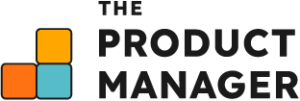Currently, only about 1 in 4 employees in the tech industry identifies as a woman. So what does it take to create a successful career as a woman in tech? In this interview series called Women in Tech, we spoke to successful leaders in the tech industry to share stories and insights about what they did to lead flourishing careers. We also discuss the steps needed to create a great tech product. As part of this series, I had the pleasure of interviewing Ellen DaSilva.
Ellen is the Founder and CEO of Summer Health, which offers message-based pediatric medical services within 15 minutes. Summer Health has raised a total of $7.5M from Sequoia Capital, Lux Capital, Box Group, Metrodora Ventures and others. Before starting Summer Health, she was the Head of Business Development at Hims&Hers, focusing on strategic partnerships and growing the business.
Thank you so much for joining us in this interview series! Before diving in, our readers would love to learn more about you. Can you tell us a story about what brought you to this specific career path?
I like to think of myself as an accidental healthcare founder. When I started my career, I knew with conviction that I wanted to work on and create great consumer products that make people’s lives meaningfully better, and allow them to feel like their voices can be heard. That passion and drive led me first to Twitter, and then to a telemedicine company called Hims&Hers, where we made it easier to get in touch with a doctor for various medical conditions.
My heart was telling me that there was a great way to democratize access to family care, and I was compelled to create a great consumer product that happens to help everyone with something foundational to all of us: our health.
It has been said that our mistakes can sometimes be our greatest teachers. Can you share a story about the funniest mistake you made when you were first starting? Can you tell us what lesson you learned from that?
I’m constantly learning and making mistakes, so sometimes it’s hard to single one out! I try not to let myself get upset with or bogged down in the mistakes but rather use them as a teachable moment. So far, my biggest starting mistake was to try to chase early hires who were not cut out for the early stage startup world.
As much as I wanted, I tried recruiting friends or even cold reach outs for various roles at my company. But I learned quickly that just because we worked well together in one environment, it didn’t necessarily mean that their expectations or skills were a match for a young business. It was a lesson I learned quickly after several failed attempts, compensation negotiations, and even false starts.
What do you feel has been your ‘career-defining’ moment? We’d love to hear the lead-up, what happened, and the impact it had on your life.
A big career defining moment for me was a conversation I had with my mentor, friend, and now-investor Alfred Lin. I was weighing a job change and, after speaking with him several times, I came to him with the epiphany that I wanted to start the business I now started. He gave me confidence and pushed me over the edge to take the risk. I’m forever grateful for those conversations, and for the support in the early days of working on my own business.
Let’s shift to the main focus of our interview. We’d love to learn a bit about your company. What is the pain point that your company is helping to address? How does your company help people?
Our company’s mission is to radically simplify access to medical care, starting in pediatric care. Over 25% of parents access an urgent care facility every year, and parents cite having over 2,000 health and wellness questions they ignore because they have no way to get the answers credibly and quickly.
For the readers with children—how many times have you called your pediatric practice’s office only to get a callback many hours (or even days) later from someone who knows nothing about your child? It’s a bad user experience and wastes hours of parents’ time and energy. Summer Health is here to combat that. And while we’re starting in pediatric care, we believe that Summer is for everyone. It’s such a luxury to text a doctor and get a reply within 15 minutes to any medical need. Now, we’re bringing that to everyone.
If someone wants to lead a great company and create great products, what is the most important quality that person should have, and what habits or behaviors would you suggest for honing that particular quality?
The ability to listen to the customer and create something your customers want is the single most important aspect to creating a great business. Ultimately, we are nothing without the people who use our products. At Summer Health, we are deeply and passionately customer-focused. We have a trope of being “default helpful,” and treat our customer service and customer feedback as the pinnacle.
Next, let’s talk about teams. What’s a team management strategy or framework that you’ve found to be exceptionally useful for the product development process?
Radical transparency has been the most effective framework for our operation, especially when it comes to product development. While companies are eradicating meetings, we lean in the other direction. We have almost-daily team all hands meetings and ensure that everything is well documented, so that everyone is familiar with what is going on at all times. We share the why, not just the how, so that the team is aligned on the strategy and goal for anything we build.
When you think of the strongest team you’ve ever worked with, why do you think the team worked so well together, and can you recall an anecdote that illustrates the dynamic?
The leadership team we have assembled at Summer Health is unquestionably the strongest team I’ve had the privilege of working with. Some of our key attributes are that we are all accountable for outcomes, honest and transparent about our needs and feedback, and bring a sense of humility when executing. One moment that stands out to me was when we realized we were falling short of our goal to provide medical care within a certain period of time. As a leadership team we were honest to diagnose the problem, avoided finger-pointing and instead came together to find cross-functional answers that were beyond the scope of what each of us could have conceived. It was true teamwork.
Based on your experience, what are your “5 Steps Needed to Create Great Tech Products”?
1. Listen to the customer. They tell you what they want, and they vote with their wallets.
2. A solutions-oriented team. Sometimes, the customer tells you what they want, but their words aren’t in focus, or the result seems impossible. It’s not, and if you have the right product-minded leaders in place, they will figure it out.
3. An MVP people actually want to use. Before building something massive, test it and iterate quickly. Those design sprints and ideation sessions of testing will serve you well.
4. Stay focused. It’s tempting to follow the shiny thing, whether it is something in the macro environment that is buzzy or whether it’s a tangent to what you’re building. Acknowledge when a pivot or branch is necessary, but try to stay focused on building one great core product experience.
5. Keep it simple. Simple rules and products can lead to complex behaviors in a great way. Make it accessible to all and you’ll see the most interesting uses of a product.
Are you currently satisfied with the status quo regarding women in tech? What specific changes do you think are needed for positive change?
The best way to change the status quo is to ensure that everyone feels a sense of responsibility for solving the problem. It’s not the job of the minority to fix the majority!
Is there a person in the world with whom you would love to have a private breakfast or lunch, and why?
I have long admired Roz Brewer, CEO of the Walgreens Boots Alliance and formerly an executive at Starbucks. Roz knows how to lead massive and diverse organizations and builds products that touch the lives of hundreds of millions of people around the world. I’d love to hear how she navigates the weight of managing a product used and loved by the masses, and advice she has on workforce leadership at a large and dispersed organization.
For more content like this, subscribe to The Product Manager newsletter.


